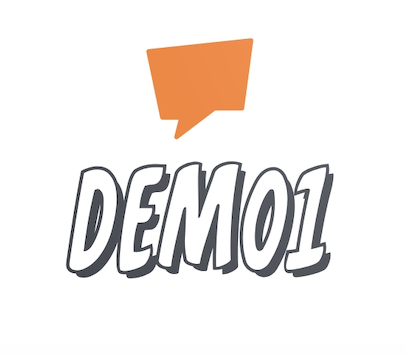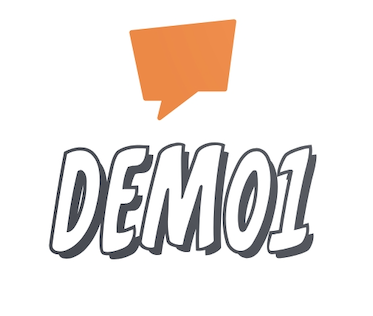Welcome to Demo1
Demo1 is a research institute and a creative think and do tank with the goal to create together sustainable democratic relations and structures which make it possible that everyone’s inviolable dignity is made visible.
The approach explores creative methods allowing everyone to discover and explore their own and others’ imagination, democratic voice and creative possibilities – and the common way how we can shape convivial, prosperous societies together.
(The website/platform is under construction.)
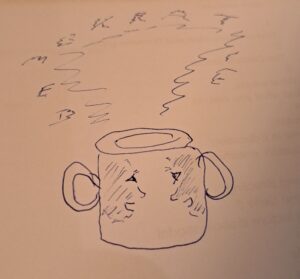
1 What we are
DEMO, the creative research institute for sustainable democracy and (drama in) education is an independent think & do tank.
It combines playful, creative exploration, education and research as well as transformative action towards a humane democratic life for all people within the planetary boundaries.
The aim is to make together the inviolable dignity of all people visible and experiencable for everyone; and to explore and transform the “humane scenery” as the global setting in which this could and can happen.
DEMO can be seen as a prototype centre – which could be established at schools and universities, health/care centres or in cities (libraries etc.), as a creative education and action space for sustainable democracy (influencing curricula, teaching methods, research and so on; inspiring transformative learning and deepening democratic spaces).
We develop and provide a unique head-hand-heart approach to explore together the organization of sustainable democratic relations, in all sectors (school and universities, health care, organisational development, and so on) – developing the 7 circles / “diabolo”-model.
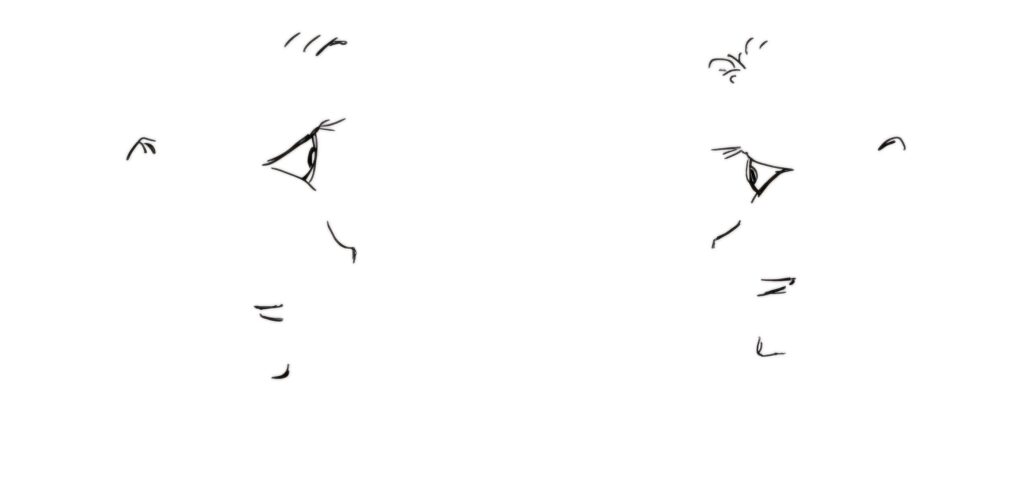
2 DEMO – sustainability, democracy, creativity
DEMO stands for democracy; but also for demonstration as in “changing the social imagination”; and for demonstration as creating and showing possible democratic relations in improvisations and performances.
Linking these dimensions, we try to rethink and deepen democracy by focusing on exploring the relational aspect of humane meetings on equal footing beyond relations and structures of domination (gender, ethnicity, class…); the exploration of reaffirming relations which can build the backbone of a convivial society.
We believe in the possibility of everyone (not only a few) to explore ones own creativity, emotions, needs, ways of relating, visions; in a playful cooperative setting. Democracy means also: everyones voice counts. We want to delevop together our voices and the ability to listen and exchange.
Our question is: what is the substance of democracy and the idea of being humane? Can we explore the creation of a humane world in playful ways by drama/education and social transformation? And in the wider context: how to get out of the sustainability crises and express everyone’s dignity and value?
Drama in Education is not only seen as one method of exploring new ways of building sustainable democratic societies, but as a core dimension of understanding and practising sustainable democratic relations of playful connections to oneself, others and nature. A special ingredient is the possibility to play with modes of not-knowing, doubting, experimenting with new ideas, role-playing and balancing between moments of capability, independence and ability and those of vulnerability, dependence and helplessness; between feelings of joy and of grief or loss; between being deconnected and creating connectedness; and by articulating all of this helping each other to listen and cope with the challenges which surround us.
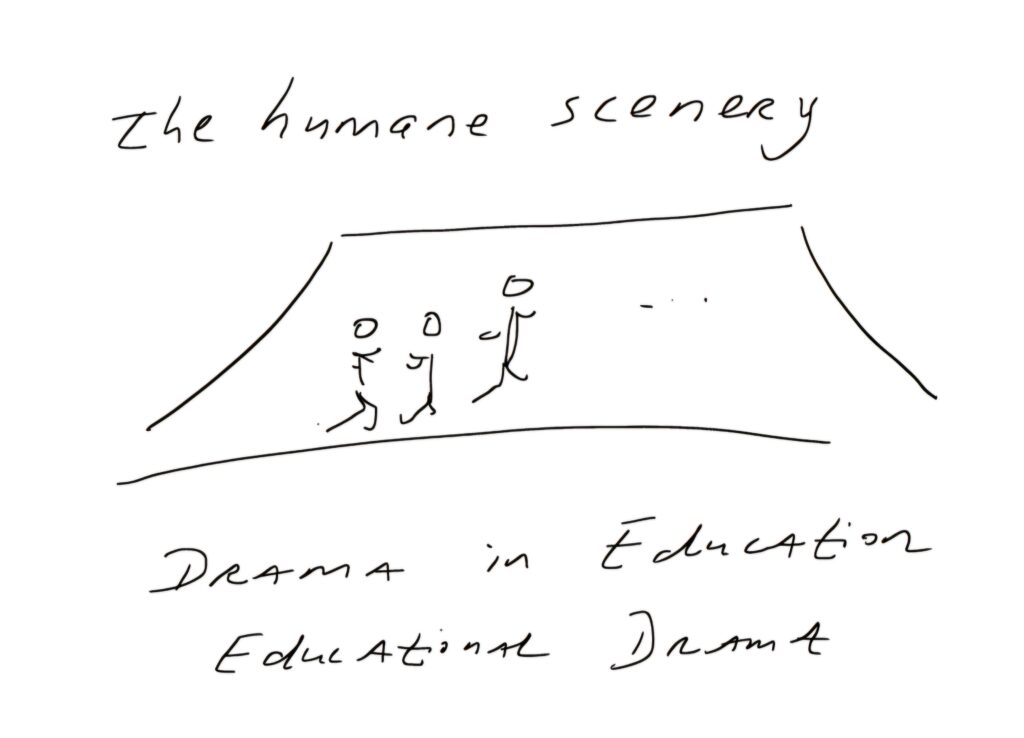
3 Vision
We imagine a convivial society that ensures a democratic life within the planetary boundaries for everyone; one that is characterised by sustainable relations as free and equal; and in prosperous societies which do provide unconditionally the basic resources for everyone to live a life in dignity.
We work for providing the knowledge and realisation of spaces in which we can explore the dimension of “being humane”: spaces, in which we can improvise, play, do research and plan action; which enable affirming contact to oneself and each others, and a regenerative, prosperous exchange with fellow human beings and nature.

4 Approach
We apply a new, social-imaginative, integrated ecological approach and corresponding esthetical and educational practices to understand and change the cultural/societal ideas and rules to co-create the transformation of our systems (political and economic) towards the vision of a life in dignity for all.
In a “humane scenery”-approach, we try to make local and global areas, structures and relations visible as a “scenery” which could and can be changed: analysing and transforming spaces with the 7 circles/”diabolo”-model.
By using drama/education and societal engagement, we try to give people from all corners of society the space and opportunity to explore the creation of humane spaces, as ways of interaction, and imagining new rules in culture, and society.
In this journey, we work from both sides at the same time: what does it mean – in playful experience as individuals and groups – to understand and create humane relations which reaffirm and strengthen each other; and what societal, economic and political rules are needed from the local to the global dimension to enable social spaces in which these relations and connected exchange are possible (in education; health care; at the work place; and in general in the economy and politics)?
We start with not blundering for the interlinked social and ecological sustainability crises and injustices, creating pain and suffering (climate, biodiversity, etc.; gender, class…; global north and south). In this way, we combine a systemic perspective with an experiential approach: highlighting the dimension of humane connectedness. We intend to develop an indirect and direct impact; towards social and political transformation on all levels.
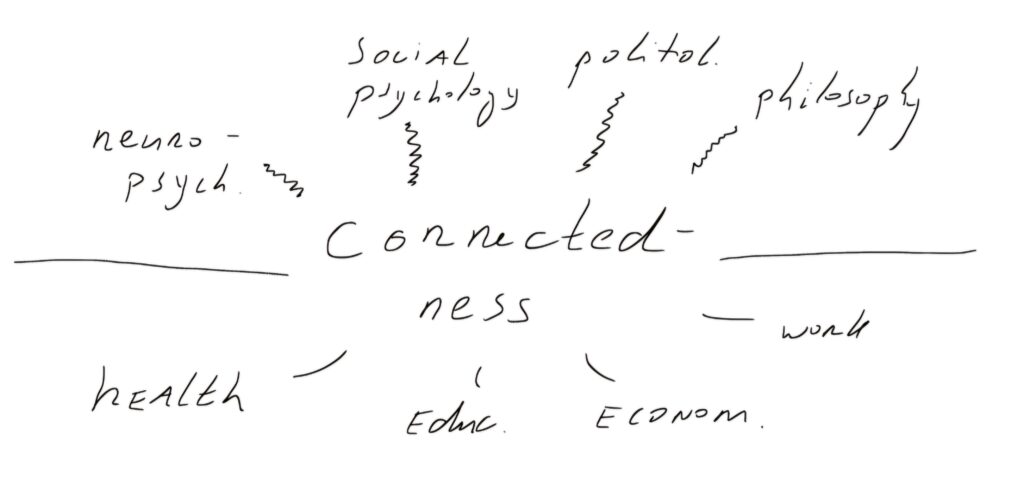
5 The 7 circles-model (“diabolo”-model)
As a tool, we develop an ecological-social-embodied approach: a new understanding of the link between sustainability and democracy, combining theory and practice in a hand-heart-head approach: (1) as an aspect of processes of democratization; (2) as being thereby about the “lived”, embodied relation to others and nature, not only about the use of resources or distributive justice; (3) as making the dignity of all visible and experienceable for everyone; (4) as about providing together unconditionally the political/economic/cultural framework and resources needed for 3, 2, 1.
All circles can be seen as interdependent and as expressing the same basic idea of sustainable democracy:
Circle 1: Embodied relation to oneself, the others and the environment
Circle 2: Psycho-social intersubjective interactions which reaffirms each other
Circle 3: Socio-psychological interaction beyond domination
Circle 4: Democratic, sustainable leadership of social spaces
Circle 5: Connected exchange in all sectors (health, agriculture, education, …)
Circle 6: Making the dignity of everyone visible (Economics and Politics)
Circle 7: (Global) Convivialism, dignity and ecophilosophy of democracy
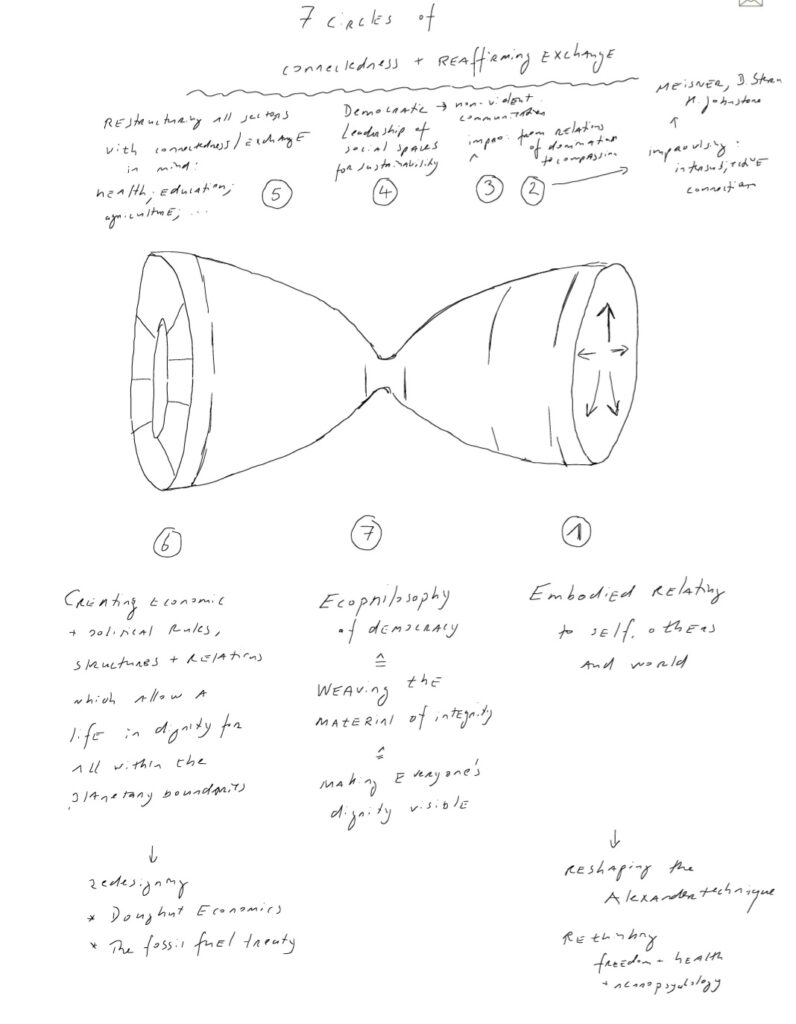
Powered By EmbedPress
